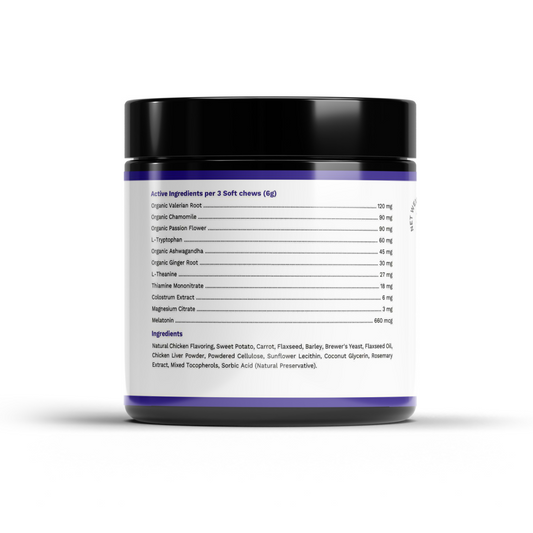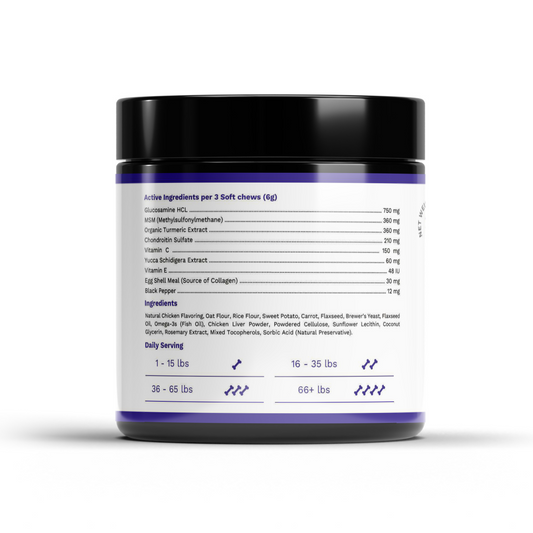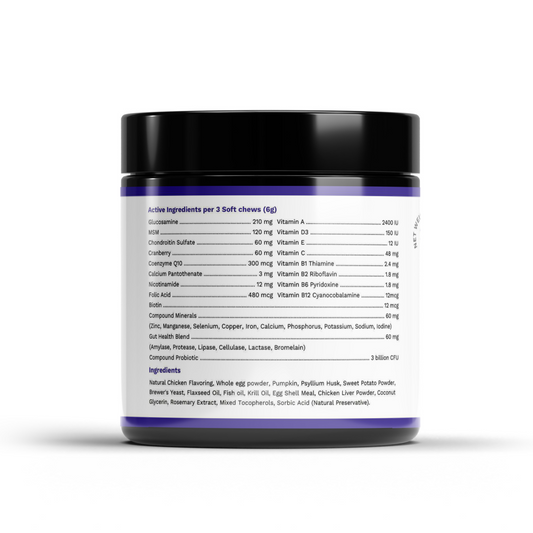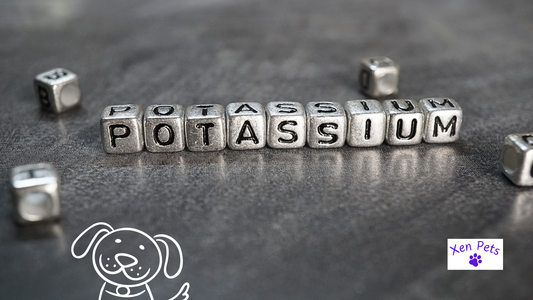Can Dogs Have Chamomile Tea?
Tory JohnsonShare
Chamomile tea provides many health benefits to humans, such as helping with insomnia and aiding digestion. But can dogs have chamomile tea? Yes, dogs can have chamomile tea or you can apply it to their skin.
Some people believe that this herbal medicine can act as an anti-inflammatory for dogs in similar ways it does for humans.
Although consuming small amounts of chamomile tea is usually considered safe for dogs, you should always talk to your veterinarian before supplementing your dog's diet.
Let's review the benefits of chamomile tea for dogs.

4 Benefits of chamomile tea for dogs
Chamomile tea has natural plant compounds that have many health benefits for your dog, such as skin irritation relief and other calming properties.
Indeed, chamomile has shown to reduce your dog's skin inflammation as well as redness, dry skin, and itching due to skin irritations.
Additionally, Chamomile is known for promoting healthy skin by excreting toxins from your dog's body.
Let's take a look at 4 benefits.
1. Healthy Skin
One of the main benefits of chamomile for dogs are the helpful benefits for inflamed skin.
Your dog's skin is one of the main ways to know if something is wrong.

Itchy skin is an obvious symptom if your dog has a skin condition or is having an allergic reaction.
Chamomile tea helps to reduce swelling and is antimicrobial in nature to help heal skin infections. You can apply the chamomile tea directly to your dog's skin.
2. Anxiety relief for your dog
When given to dogs, chamomile tea can help to reduce separation anxiety and promote relaxation.
In recent years, chamomile has become popular as a way to reduce mild anxiety in dogs. Chamomile contains a compound called apigenin, which has been shown to help mild anxiety.

It's important to note that chamomile tea should not be given to dogs with allergies to pollen, ragweed, or plants in the daisy family.
If you are unsure whether your dog is allergic, it is best to consult with a veterinarian before giving them chamomile.
3. Parasite Removal
Chamomile tea works as a natural parasite remover. Over time, chamomile tea works to get rid of parasites like ticks.
Also, it's non toxic, so go ahead and apply it to your dog's skin and coat. See if it works for you!
4. Anti Inflammatory Properties
One of the main benefits of chamomile tea is it's anti inflammatory properties.
It can be applied directly to your dog's skin to reduce inflammation caused by parasites.
In addition, it can help relieve inflammatory bowel disease. Of course, you'll need to give your dog chamomile as a supplement as it's more effective than giving them tea.
How to make chamomile tea for your dog

Making your dog a delicious cup of chamomile tea is a simple process. Follow the steps below for a quick and easy cup of tea.
- Begin by boiling one cup of fresh water.
- Measure a teaspoon of chamomile flowers and place in an infuser, teapot, or loose leaf infuser.
- Pour the boiling water over the tea and steep for at least 5 minutes.
- Remove or strain out the herbs when you're finished steeping.
- Once the tea has cooled off you can serve it to your dog. Alternatively, you can apply the cooled chamomile tea to your dog's skin to relieve irritated skin, inflammation, and potentially remove parasites.
Chamomile tea alternative
Dog owners don't always know the dose of chamomile in their tea. That's why we've created Xen Pets Calming Chews for Dogs. Our calming treats contain 90 mg of chamomile per serving.
Wrap Up: Can dogs have chamomile tea?
If you have a dog that suffers from anxiety or skin inflammation, try giving your dog chamomile tea.
Chamomile may help your dog feel more relaxed and comfortable in situations that would normally trigger their anxiety.
It can even help your dog's stomach during stressful situations like car rides.
Check out our ultimate tea guide - Can Dogs Have Tea?
Do you have any experience giving your dogs chamomile or another soothing herb? Have you found relief for your dog's muscle spasms? Does your dog enjoychamomile infused treats? Have you heard of roman chamomile?
Let us know in the comments below!











